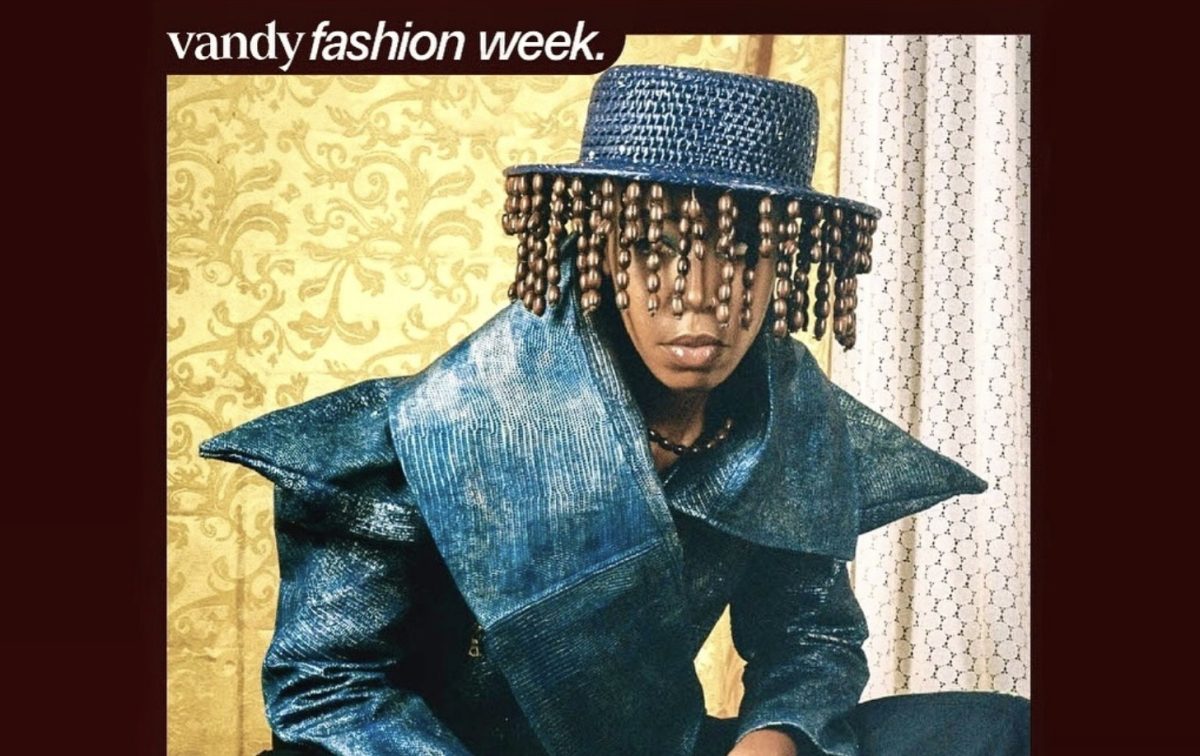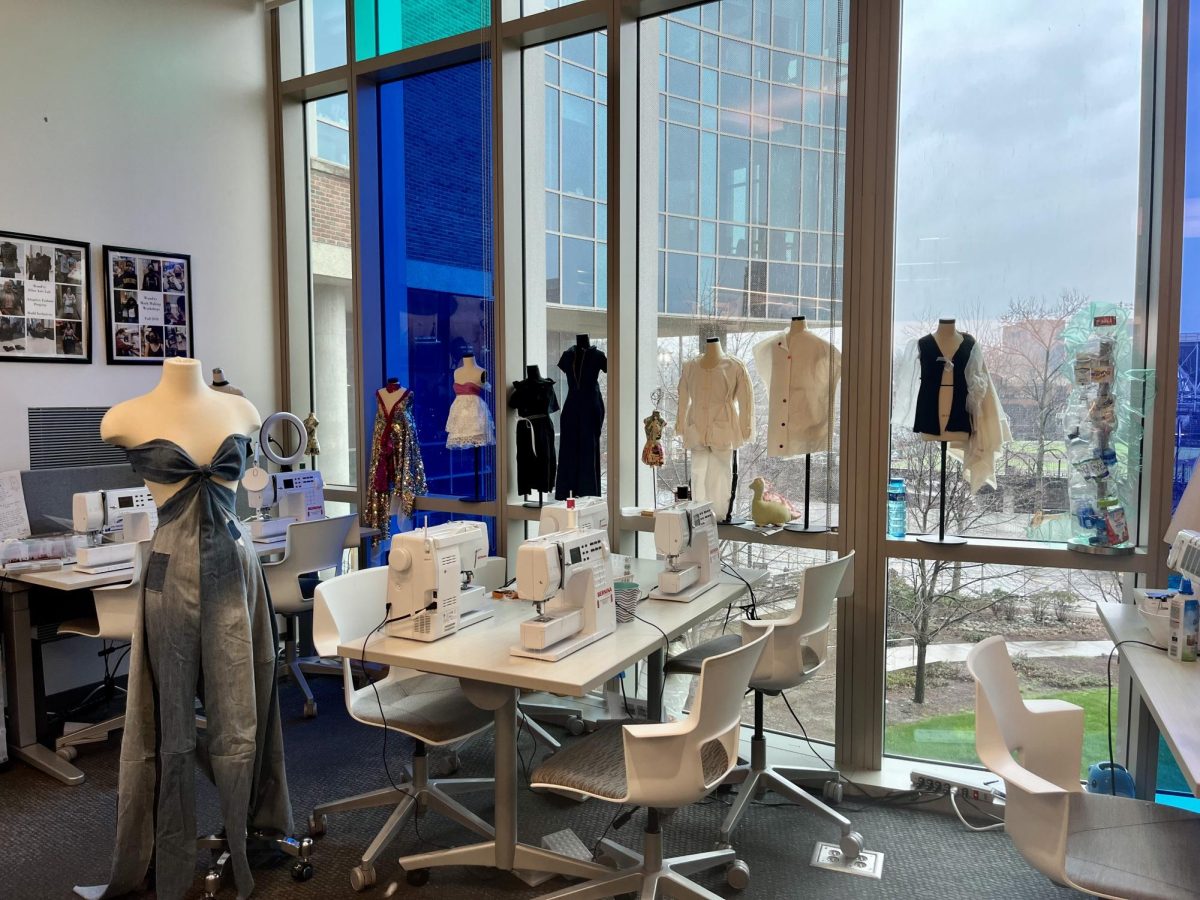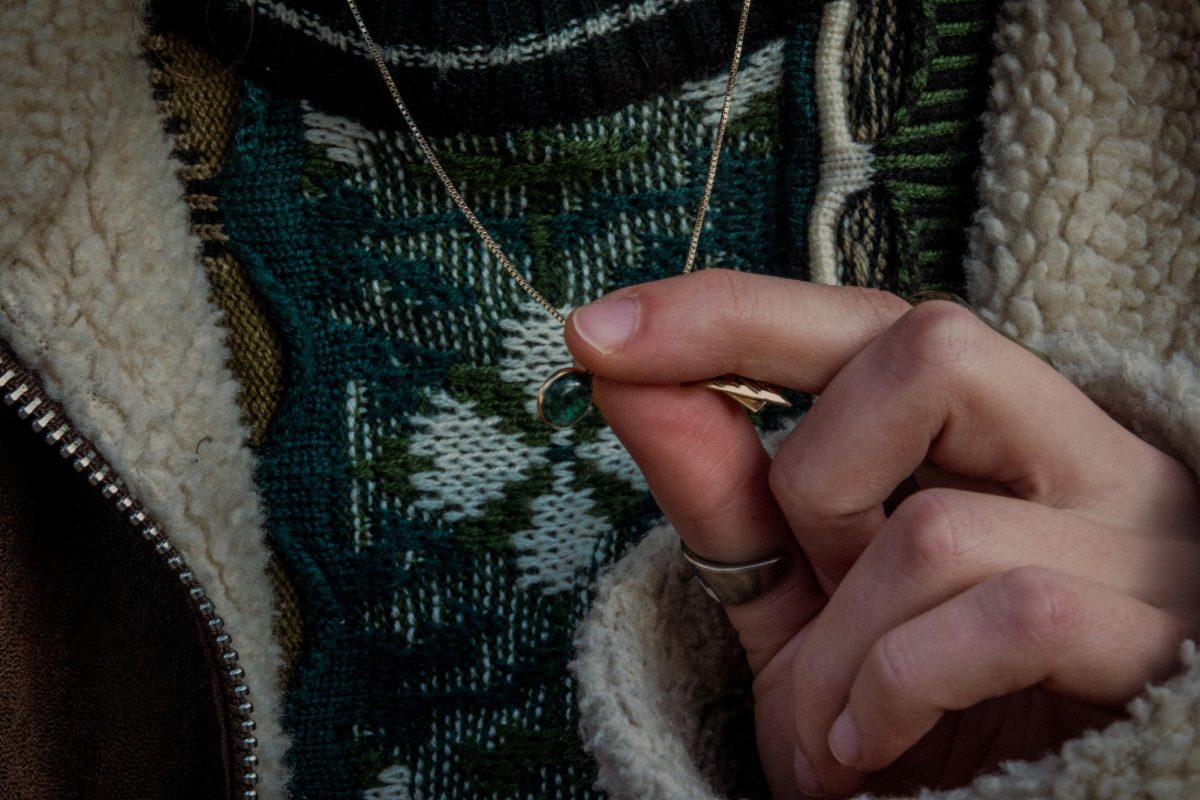As a society, our choices in fashion say a lot about us. We dress for a variety of reasons: to meet the occasion, to bolster our self confidence or to express a unique part of ourselves.
“Clothing is so special and interesting because it is the only thing we have control over in terms of our visual impression,” sophomore Jennifer Coen said.
As young consumers, a lot of what’s “trendy” in fashion is marketed to us through social media. Trends spread rapidly, which can be very evident in a closed environment like a college campus. When clothes are marketed to us and our peers flaunt their favorite brands, we can’t help but buy into trends ourselves. Why does this happen and what does this say about college students as consumers? I sat down with some faculty and students to discuss this topic and its ties to sustainability.
“You guys are pressured into buying a lot of stuff at a lot of different price points. It’s a built in part of your culture,” Senior Lecturer of Theatre Alexandra Sargent-Capps said. “I think it’s history; I think it’s marketing; I think it’s economics. It’s a visual culture that you’re living in based on internet globalization and social media.”
There’s no question that buying into trends is a key contributor to “fast fashion,” a method of making clothes that requires rapid production and constant restocking of new items along with the disposal of old ones.
“The point of fast fashion is to take designs from the runway and turn it into items that are in the average person’s closet. That rapid production process is the fast part of fast fashion,” junior Zahra Biabani said. “In order for that to happen you have to be craving new things all the time, and that is inherently incompatible with sustainability.”
Students and professors alike emphasized the importance of consumers being informed regarding the weight of their purchasing power.
“People approach fashion assuming that the gradient of prices coincides with the gradient of quality when that is so unlikely the case,” Coen said. “The social aspect of the global dependency on the fashion industry and exploitative sweatshops go to show how much voting with your wallet actually matters.”
The environmental impact of fast fashion has been one of the most effective methods of conveying the detriments of the industry, and the human impacts are upsetting to say the least.
“Fashion is eight to ten percent of our carbon footprint. We’re all aware that we need to recycle bottles and paper, but no one really realizes that polyesters are actually plastic,” Sargent-Capps said. “They are made out of the same thing that plastic bottles are made out of.”
Much of wasteful consumption has to do with an “out of sight, out of mind” mentality, according to Coen.
“You’re not experiencing the effects of climate change from that one purchase so it’s really hard to get people to start caring,” Coen said.
The task of raising consumer consciousness is a lofty one. It requires undoing elements of our culture that are ingrained and prevalent throughout history. However, the light at the end of the tunnel is seen in the work of student activists and the emergent attitudes regarding sustainability.
At Vanderbilt alone, a lot of progress can be charted. Professor Sargent-Capps, for example, teaches a first-year writing seminar devoted to the topic of sustainability in fashion. Biabani runs a sustainable life and fashion blog called “Soulful Seeds,” and Coen helped spearhead VSG’s pop up thrift store and upcoming projects.
Whether it’s debating if your Canada Goose jacket is ethical or if those spring break Shein bikinis are exploitative, the time has come for students to acknowledge the efforts of their impassioned peers and consciously look for sustainability in the brands they choose.
















